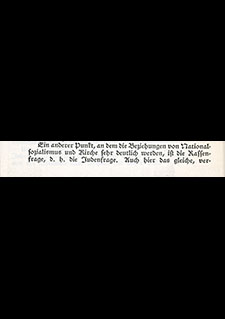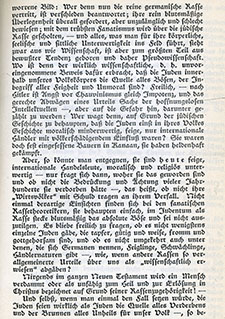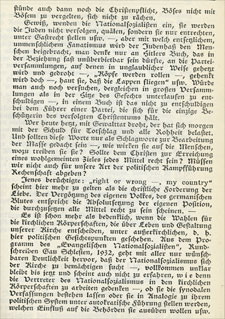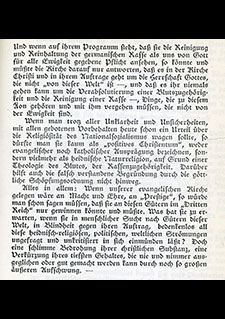Rejection of National Socialism
In her contribution of 1932, Ina Gschlössl especially condemned the idolatry of one’s own nation, of Germanic blood and its consequences. Like eighteen others in the critics’ camp, Gschlössl categorically opposed Nazi racial ideology and its reception in theology and the church:
People are being taught to hate Jews with such horrible, inhuman fanaticism, think only of Hitler’s book, which is probably nearly unparalleled in this respect, of the party assemblies, at which hatred and threats against them are stirred up unbelievably. … If one would also even attempt to excuse such things in large assemblies as occurrences in the heat of battle –in a book it is inexcusable from the Führer of a party that regards itself as the sole protector of persecuted Christianity. Whoever stirs up hatred and threatens acts of violence today, will be burdened tomorrow with the guilt of killing and every brutal act. …
What should our Protestant church expect when, blind to its mission, it unhesitatingly allows all of these heathen religious, political, secular currents to enter into it without question and without criticism? In any case, a grave threat to its Christian substance, a diminishment of its deepest meaning, which can never ever be reconciled or made good.
In conclusion, Gschlössl asserted that National Socialism’s religiosity exhibits neither a Protestant nor a Catholic identity, “but rather” must be viewed “as a heathen nature religion because of its theology of blood, of race.”
Source / title
- © Ev. Arbeitsgemeinschaft für Kirchl. Zeitgeschichte, München




